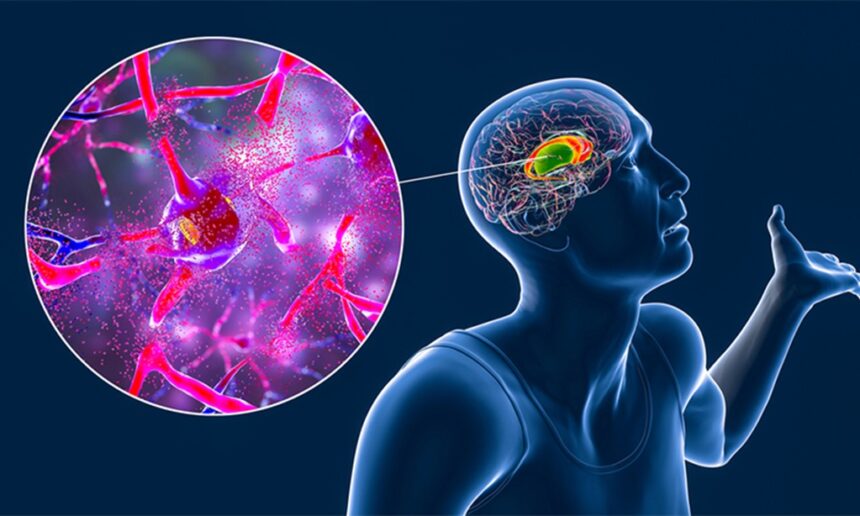LONDON – Doctors say a new therapy has slowed Huntington’s disease for the first time, offering fresh hope for families. The inherited condition destroys brain cells over time and shares features of dementia, Parkinson’s and motor neurone disease.
A first-of-its-kind gene therapy has shown clear success against Huntington’s disease, a fatal inherited disorder. In a clinical trial, treatment slowed the illness for the first time in people who carry the faulty gene.
Huntington’s stems from a single genetic error that kills brain cells over time. It causes thinking problems, movement issues, and eventually paralysis, then death. If a parent has Huntington’s, each child faces a 50% chance of inheriting it.
Until now, no treatment could slow the disease. After three years, the gene therapy cut disease progression by an average of 75% in treated patients.
Prof Sarah Tabrizi, who leads the Huntington’s disease center at University College London and headed the trial, told the Guardian the field finally has a real treatment for a terrible condition. She described the results as huge and said she felt overjoyed.
The therapy switches off the mutant huntingtin protein that drives the disease. It is delivered to the brain in a single procedure that takes 12 to 20 hours, so it will not be cheap. Even so, the findings have brought new hope to families who have watched loved ones decline.
Huntington’s Disease Diagnosis
Symptoms usually begin in a person’s 30s or 40s. Early signs include mood swings, anger, and depression. Over time, people develop involuntary movements, cognitive decline, and paralysis. Many die within ten years of diagnosis.
With treatment, patients could stay independent and keep working for much longer, Tabrizi said. The strong effect also raises the chance that earlier treatment could delay or even prevent symptoms.
In the UK, an estimated 6,000 to 10,000 people are living with Huntington’s Disease, and at least 20,000 more carry the faulty gene. Only about one in five at-risk people choose genetic testing, since current care mainly manages symptoms. Tabrizi expects more people to come forward for testing now that there is a therapy that slows the disease.
Robyn Perry, 34, has cared for her father with Huntington’s for 16 years and learned at 20 that she carries the gene. Her father’s diagnosis sent shockwaves through the family, with several relatives finding out they were also carriers.
She described that time as bleak. Now a support worker in Liverpool with mild motor symptoms, she hopes to receive gene therapy in the future. She said she and many in the community cried with relief when they saw the results. After years of pushing for a cure, she said this moment means everything to families like hers.
Trial Involved Over 20 Patients
The mutant gene tells cells to make a toxic version of the huntingtin protein. The treatment uses a harmless viral vector to deliver a custom DNA strand into neurons.
To reduce risks, doctors infuse the virus very slowly through a microcatheter into two brain regions, a complex process that takes 12 to 20 hours. Once inside the neurons, the DNA instructs cells to block production of the toxic protein.
The trial involved 29 patients in the UK and the US. The company behind the therapy, uniQure, released topline data, with full results still to come. Three years after treatment, those on the high dose showed an average 75% slowing of disease progression based on motor tests, cognitive measures, and daily functioning.
Brain biomarkers also improved. Levels of neurofilaments, a marker of nerve cell damage, were much lower in the treated group.
Walid Abi-Saab, chief medical officer at uniQure, said the team is excited by the results and what they could mean for patients and families. The company plans to seek approval in the US early next year.
Related News:
Monsoon Rains Trigger Rare Brain-Eating Disease in Kerala, India














